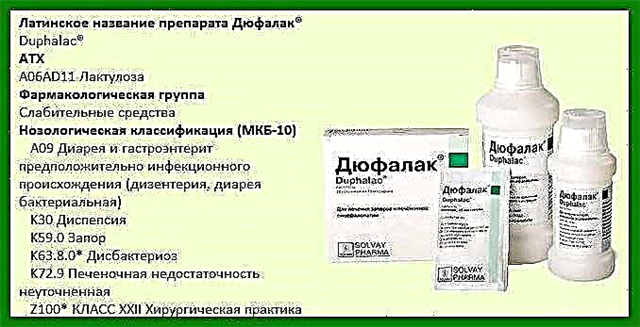
Contrary to popular belief about the benefits of milk for children, this product is not useful and necessary for everyone. So, babies born with galactosemia cannot eat milk and dairy products due to their illness. But galactosemia is not a sentence at all, and mom and dad just need to be clearly aware of how to act if the baby is diagnosed with this.


What it is?
Galactosemia is a hereditary ailment that occurs with metabolic disorders in the conversion of galactose to glucose... Genetically, the production of a special enzyme with a complex name - galactose-1-phosphaturidyltransferase - is impaired from birth in a child.
Galactose in milk, more precisely, with milk sugar (lactose) enters the child's body. Further, in a healthy baby, lactose under the influence of the specified enzyme with a long name and two more enzymes is converted into glucose and absorbed. In children with a genetic impairment of enzyme synthesis, this metabolism is impaired, due to which lactose is not converted or fully converted to glucose.
Gradually, in sick children, lactose accumulates in the blood, in the tissues of internal organs, begins to have a toxic effect on the nervous system, liver and lenses of the organs of vision.
Usually, the disease is detected already in newborns, and the people call it simply - intolerance to milk and milk formulas.
Infant responds to standard vomiting feeding he loses weight, suffers from extensive jaundice, and gradually develops cirrhosis of the liver, edema and cataracts. If this metabolic disorder is ignored, delayed mental and motor development gradually develops.


Galactosemia belongs to a rare genetic disease, it occurs in one case per 30 thousand births, and, according to the WHO, in just one case per 50 thousand births.
The first case was described at the beginning of the 20th century, then the doctors noticed that the symptoms of the disease receded when the child stopped giving milk. The true cause of milk intolerance and its relationship to genetics was described and substantiated in 1956 by Hermann Kelker.

Causes
The cause of the disease lies in the gene mutation inherited by the child. Inheritance occurs in an autosomal recessive manner, in other words, only the baby who inherited two copies of the gene with a defect from both mom and dad will suffer from galactosemia. The parents themselves may not even know that they are carriers of the gene with a defect, and sometimes they also develop milk intolerance, but to a very insignificant extent.
Since three enzyme substances are involved in the cleavage of galactose, three types of disease are distinguished - it all depends on which particular enzyme is produced little. In the child's blood, with a violation of this metabolic process, an accumulation of individual metabolites begins, which negatively affects the condition and work of internal organs: the liver, kidneys, spleen, digestive organs, and the central nervous system suffer.
The gene responsible for the production of necessary enzymes is located on the site of the second chromosome. The inheritance of a defect from mom and dad causes a defective gene in a child, and this is the only reason for the deficiency of enzymes necessary for normal digestion of milk.


Symptoms and Signs
Usually, the diagnosis becomes obvious already in the first few days of a child's life after birth. Systematic vomiting, which appears every time after the baby has tasted breast milk or formula, should alert mom and doctors. The kid is tormented by diarrhea, the feces are liquid, watery, and the symptoms of general intoxication are gradually increasing.
The newborn becomes lethargic, begins to refuse the offered breast or bottle of formula. He quickly loses weight, literally in a few days the toddler can reach exhaustion. The tummy is swollen due to the accumulation of intestinal gases. Reflexes, with which all healthy babies are born, gradually begin to fade, persistent jaundice appears, the liver increases and may be edematous.
If nothing is done, then already after 6-8 weeks cirrhosis of the liver may develop.

Blood clotting processes are disrupted, the baby has bruises and minor hemorrhages on the skin and mucous membranes. Delays in mental and motor development become apparent very early. By a month, cataract can be detected on both sides, urine tests show a violation of the kidneys, the norm of hemoglobin in the blood is reduced. The baby suffers from underweight or severe malnutrition, liver failure. His immunity is very weak, due to this, various infections are usually attached.
The liver suffers with any severity of galactosemia, both mild and severe. The condition can be complicated by sepsis, ovarian depletion in girls. Half of preschoolers with this diagnosis have problems with speech, coordination of movements, while understanding the speech of others is usually not impaired.


What to do?
The main thing is not to panic. Clinical recommendations of the WHO and the Ministry of Health of Russia state that early detection of metabolic problems will help to quickly take action and reduce possible complications. Sometimes a geneticist may suspect galactosemia in a child even during the mother's pregnancy, and then a chorionic villus biopsy, cordocentesis and other invasive prenatal diagnostic methods will help to answer the question of whether the child has a hereditary ailment or not.
But even if during pregnancy nothing was known about galactosemia, after birth, all newborns undergo, according to clinical guidelines, screening, which includes tests for hereditary ailments such as phenylketonuria, hypothyroidism, galactosemia, cystic fibrosis and adrenogenital syndrome.
Analyzes are usually done on the 3rd day if the baby is full-term, and on the 7th day if the baby was born prematurely. This first clinical examination allows you to find out at an early stage whether the baby has one of the genetic diseases listed above.

If galactosemia becomes apparent, a geneticist and pediatrician will talk to the parents. The main thing that they need to learn is information on how to feed the baby properly. Additionally, general and biochemical analyzes of blood, urine, feces are prescribed, an ultrasound of the abdominal organs is done to reveal how much the organs are already affected. A neurologist, an ophthalmologist is involved in therapeutic measures.

Treatment
A baby with galactosemia is assigned a special diet - it is based on the absence of all milk in the diet. This applies to any product from this line: breast milk, cow's milk, goat's milk mixtures, all dairy products without exception, bakery products, yeast baked goods, sausages and sausages, chocolates and other sweets, margarine. The ban is soy, legumes, chicken and other eggs, liver and other offal. This food will be almost lifelong.
You will have to feed the child with special medicinal lactose-free mixtures. They will be available with a referral from a doctor. From the age of four months, the child will be able to receive complementary foods in the form of juices from fruits and berries, from five months - fruit, vegetable purees, and then - dairy-free cereals, which should be diluted with special lactose-free mixtures. From half a year, the toddlers can receive meat complementary foods, while preference should be given to rabbit meat, turkey, beef. From the age of eight months, it is permissible to add fish to the child's diet.

There are no drugs that can help cure galactosemia. But in order to improve the metabolic processes in the child's body, vitamins, cocarboxylase, potassium orotate can be recommended.
Important! Homeopathic remedies are prohibited for children with diagnosed and confirmed galactosemia. All without exception. The fact is that homeopathic medicines contain lactose.
The child will not become blind, oligophrenic or a patient with liver cirrhosis if therapy begins literally from the first days of life. In this case, the forecasts are relatively favorable. If you start feeding the baby correctly and treat him at a later age, when damage to the liver and nervous system has already taken place, it is unlikely that unpleasant consequences can be completely eliminated. Unfortunately, with severe galactosemia, everything is often fatal.
It should be understood that establishing a diagnosis of galactosemia in a child, regardless of the severity and timing of the diagnosis, gives parents the right to register their child with the status of a disabled child. There is scientific evidence that with age, the manifestations of galactosemia gradually weaken, but it is not possible to completely recover from this hereditary disease.

About how not to confuse rare diseases with common digestive disorders, as well as whether children have lactose deficiency, says Dr. Komarovsky in the video below.



